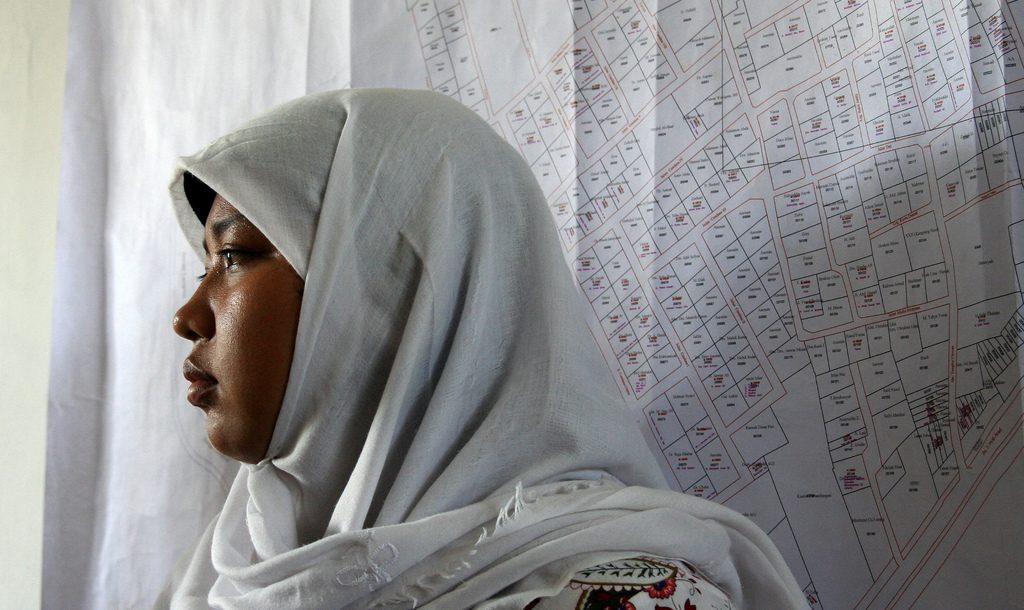Violence and discrimination against women in Indonesia needs local solutions, writes Frida Rahmita.
Women who live in rural areas of Indonesia are often surrounded by poverty and are vulnerable to violence and injustice in the name of tradition or religion. They tend to have less access to education, earn less than men, and are subject to discrimination and exclusion from decision-making processes within households and communities.
Ethnic minority groups and women are more likely to experience poverty. Indonesia comprises about 300 ethnic groups, who speak a wide variety of languages and mostly live on the larger islands. These communities are often not fully integrated into mainstream economic activities. They may also experience a lack of access to education, poor health, absent or limited basic social services and facilities.
Since 1984, Indonesia has joined other countries in the ratification of CEDAW (Convention on the Elimination of All Forms of Discrimination against Women). CEDAW is the most extensive legally binding framework for women’s rights, its objective is to give visibility to specific forms of inequality experienced by women and provides legitimacy to women’s claims against discrimination.
In an effort to implement the CEDAW provisions, Indonesia’s Ministry of Home Affairs in 2002 has started the Program on the Empowerment of Heads of Families with special focus on poor women-headed households in four provinces: Nanggroe Aceh Darussalam, East Nusa Tenggara, Central Sulawesi and West Java. The 2011 UN Women country report states there are 3,395 women-headed households within the four provinces, spread across 85 villages, 15 sub-districts and 11 districts.
The program, however, did not stop the persistence of adverse cultural norms, traditional values and patriarchal attitudes especially among villagers living in islands outside of Java. Deep-rooted stereotypes regarding responsibilities and identities of women and men continue to be barriers for women enjoying equal and full rights.
This includes the practice of harmful traditions against women such as “sunat perempuan” (female genital mutilation), the “belis” (dowry) tradition, “patiwangi” (a degrading ritual that takes place when a woman marries someone from a lower caste), early marriage, and forcing rape victims to marry their rapist – all of which continue to be found in certain areas.
It would also seem that Indonesia’s political decentralisation process has allowed many provinces to implement laws and policies that discriminate against women.
The establishment of sharia law in Aceh is a good example. The law has reinforced Islamic dress codes, severe penalties in response to allegedly ‘immoral relationships’, legitimisation of female genital mutilation, and other restrictions concerning personal aspects of women’s social and public life.
In contrast to Aceh, the Hibun Dayak women in West Kalimantan had previously enjoyed customary norms with no gender differentiation in inheritance rights for individually owned land: whoever cared for the parents inherited the most land. But after the provincial government granted long-term land concessions to palm oil plantation companies, the relatively balanced division of labour between Hibun Dayak women and men ended.
The current compensation schemes undermine the property rights that Hibun Dayak women had previously enjoyed, which has led to escalating domestic conflict over the control of oil palm income and has helped contribute to an increase in violence against women.
Given the main obstacle in implementing gender equality is local norms and traditional values, government policy alone cannot solve the problem. These cases show that the challenges faced by women vary across Indonesia and are as diverse as the sprawling country itself is. What works well in West Kalimantan might not work well in Aceh, and what works well in Aceh might not be the right answer for women living in Sulawesi. Culture and religious norms are a constraint to women’s freedom in Aceh, but it is a different case in West Kalimantan.
Instead of relying on the government policy, women’s organisations might want to consider localised strategies to solving these challenges. A local-based program is necessary to address the customary norms, the so-called “adat” law, and to approach the local government that has a direct authority to deal with the problem.
Women’s human rights are indeed universal, but women’s point of view are shaped by the culture and traditional norms applied by the society where they live.
Frida Rahmita is a graduate in international relations from Webster University and a writer.
 Facebook
Facebook  Twitter
Twitter  Soundcloud
Soundcloud  Youtube
Youtube  Rss
Rss 